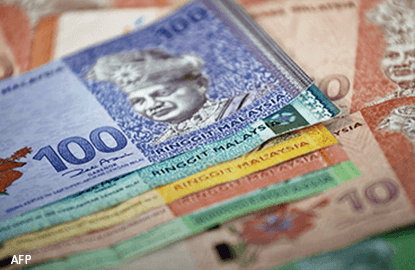
KUALA LUMPUR (May 13): Bank Negara Malaysia's new governor, Datuk Muhammad Ibrahim, is confident the ringgit will reflect its fundamentals in the long run.
Over the medium term, it will be supported by Malaysia's economic resilience, said Muhammad after briefing reporters on the country's 2016 first quarter economic performance today.
In the first quarter, the ringgit outperformed the currencies of major and regional countries and appreciated 9.4% against the US dollar.
The ringgit also appreciated against the pound sterling by 13.1%, the euro by 5.7%, the Australian dollar by 4.4% and the Japanese yen by 2.2%. Against all regional currencies, the ringgit also appreciated by between 4.6% and 9%.
The improvement was mainly due to expectations of a slower pace of interest rate normalisation by the Federal Reserve (Fed) in the United States, and the recovery of Brent crude oil prices and the 2016 Budget recalibration.
These factors have lifted investor sentiment on the Malaysian economy and led to the increased demand for ringgit as a financial asset.
However, uncertainties in the external environments continue to pose risk to the local note.
Some of these risks include: expectations that the Fed's pace of interest rate rise could change, ongoing adjustments in China that continue to raise growth and market concerns, and expectations that crude oil prices will remain volatile due to uncertain supply and demand conditions.
As for the risks posed by 1Malaysia Development Bhd's (1MDB) problems on the ringgit, investors' confidence and Malaysia's sovereign rating, Muhammad said: "Firstly, I think the government has issued a statement saying that they will honour all their debt obligations.
"Secondly, if you look at some of the comments made by the rating agencies, the sovereign rating of Malaysia will not be unduly affected.
"Thirdly, I think the ringgit has in a sense priced in the issue of 1MDB," he added.
Malaysia's first quarter gross domestic product growth this year decelerated to 4.2%, compared with 4.5% in the immediate preceding quarter, due to external shocks and more cautious private sector spending.
The slower growth is more obvious when compared with the 5.7% that was recorded in the same quarter last year.